Black Hats, Green Fatigues
Oh, you studied philosophy,” Betzalel says, “are you more of a Husserl or a Wittgenstein guy?” We’re on the staircase of Pitchei Olam, a haredi kollel in Jerusalem, where he and other young married men are studying Sanhedrin, the talmudic tractate in which the ancient Jewish sages of Babylon talk statecraft. The other avreichim are slow to arrive for the morning hours of learning, but Betzalel (who requested that I only use his first name in this article) shushes me when I ask when he decided to sign up for the Israel Defense Forces—“we’ll talk about this outside.”
Under a leaky umbrella two blocks away on Kanfei Nesharim Street, this twenty-four-year-old husband and father tells me that, like other religious Israelis, he was in shul on October 7 when he heard the sirens and the booms. The rabbi cut the Simchat Torah dancing short, and Betzalel spent the morning in and out of bomb shelters. Throughout the day he heard the rumors, and checked his phone Saturday night to learn the much bloodier truth.
Betzalel and at least two thousand other men in their twenties and thirties are the haredi community’s most public volunteers for the Israel Defense Forces in decades (as of this writing, several hundred have been formally drafted). Those I’ve spoken to over the last several weeks are both traditionally learned and professional, studying or working outside a Torah institution—Betzalel is getting a psychology degree at Israel’s Open University—while continuing their talmudic studies. Army service even for such haredim is rare—before the war, 80 percent of eligible non-haredi Jewish men were drafted; for haredim, it was less than 10 percent.
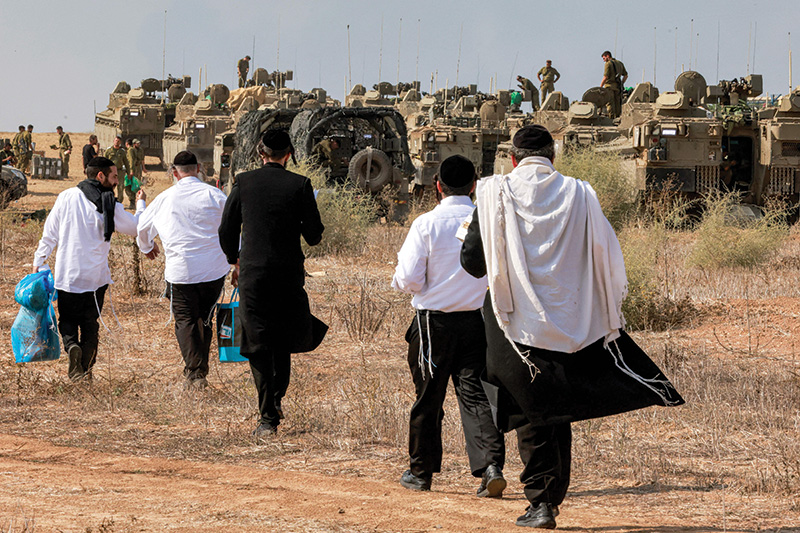
Nobody I spoke to described enlisting as rebellion. These men are proud to serve and proud to be haredi. It is doubtful that their community’s leaders share this dual pride. Haredi parties initially supported the Netanyahu government’s convulsive efforts to reform Israel’s Supreme Court, which has overturned several iterations of the draft exemption for yeshiva students in recent decades. In 2017, the court invalidated a successor to the overturned Tal Law, which had codified the draft exemption while trying—and mostly failing—to entice more haredim to join the IDF. The justices have permitted the defense minister to continue the draft exemption while a new law is negotiated. Enshrining the draft exemption once and for all remains a central aim of the haredi parties.
The general haredi refusal to fight has long infuriated more liberal Israelis, as they declared in protest signs and in interviews throughout last year’s political unrest. And it qualifies Israel’s newest haredi soldiers as, if not rebels, then as the most formidable recent dissenters from a leadership that has tried mightily, through politics and economics and culture, to keep its followers out of the Israeli army.
As a boy, Betzalel studied in a “closed” yeshiva, where students were scolded when they didn’t wear black shoes or if they tucked their tzitzit in their shirt instead of letting the ritual fringes dangle. A relative’s copy of Yuval Steinitz’s Invitation To Philosophy broadened Betzalel’s interests (“I like Descartes, he’s looking for the bottom under things”), and he later was tutored by an Israeli professor. But Betzalel never left—rather, he flourished in, and is happy and proud to have flourished in—mainstream haredi institutions. He went to good yeshivas, got into a good kollel, and married a Bnei Brak native whose father studies full-time in Ponovezh, that city’s preeminent academy.
Betzalel’s profile is somewhat unusual, though the haredi community is more porous than standard depictions suggest—smartphones and computers abound, people read the news, and most haredi adults work. But the army is different, especially if, like Betzalel, you are under twenty-six and signing up for a few years of regular service. Most haredim who’ve enlisted since the war began are older, and will train for just a few weeks before entering the reserves. Joining the IDF means trading peak years of Torah study for roughing it in a military that accommodates religious observance but is not itself religious. Haredim who do that need strong reasons.
An intellectual tradition one might consult for such reasons is Religious Zionism, which appeals to classical Jewish texts to articulate the sanctity of the land, politics, society, and military of the modern Jewish state. But Betzalel insists he wasn’t primed to join the Israel Defense Forces by reading Abraham Isaac Kook or his heirs. “I think it is a great mitzvah to save lives, to be part of saving the lives of our people,” he says without reference to any further ideological commitments. Betzalel (like the other haredi soldiers I’ve interviewed) speaks frequently of “Am Yisrael,” the nation or people of Israel, but almost never of “Medinat Yisrael,” the modern state itself. And he is not just defensively proud of his community—his censure of secular Jews for “mockery of the sacred,” and of non-haredi Orthodox Jews for halakhic laxity, shows a real haredi pride.
Motti Leitner, a Hasidic father of three who lives in Beit Shemesh, is equally concrete about his motives. “I began to fear for myself” on October 7, he says. “What if it happens here? In Jerusalem? The police will come? The army will come? You should come and take responsibility.” Nothing about redeeming the land of Israel or hastening the messiah or establishing a halakhic polity. Just a personal response to a national threat.
A few days before Israel declared independence in May 1948, senior Orthodox rabbis—including the heads of the two most important Jerusalem yeshivas, Chevron and Mir—declared that “whereas it is the obligation of every Jew to rescue and defend the city,” yeshiva students should receive military training and perform guard duty under a religious commander. They signed a document, unearthed and published by the haredi newspaper Kikar HaShabbat six years ago, charging all but a few exceptional students plus teachers with defending against “the tangible threat” of invasion. The Tuvia brigade—named for its commander, Tuvia Bir—put several hundred yeshiva students to work fortifying Jerusalem’s vulnerable neighborhoods.
At Israel’s founding, David Ben-Gurion relieved four hundred yeshiva students from army service. That was quite a few at the time—the Holocaust had all but destroyed the world of European yeshivas—but Ben-Gurion never issued a general communal exemption. Menachem Friedman and Samuel Heilman have estimated that at various times in the early life of the state, about half of haredi men served in the IDF, though most of them received brief training and then went into reserves or non-combat brigades. An article published in the haredi newspaper Hamodia in June 1967, a few days before the Six Day War, celebrated the Orthodox soldiers for serving in “the most forward positions … wherever the army is, these soldiers will be found.” MenachemKeren-Kratz, an independent scholar, has estimated that 4 percent of Israeli soldiers who fought in the Six Day War were haredim.
In 1977, when Menachem Begin came to power, draft exemptions (which, since Ben-Gurion, had been ministerial decisions, not requirements of law) were still supposedly limited to eight hundred, though according to Knesset data they were actually about ten times that. Begin needed haredi parties to form a governing coalition. They demanded unlimited exemptions in exchange. Begin’s assent, government and Western philanthropic support for Torah institutions, and gainfully employed haredi women have enabled a large population of Jewish men to study rather than serve in an IDF that is—as haredim have insisted to me many times—competent without black-hat yeshiva students in uniform.
Those yeshiva students—about one hundred forty thousand today—and their institutions are the apex of what Menachem Friedman has called the haredi society of scholars. Lay and rabbinic haredim often and proudly say they compose a modern-day tribe of Levi, the Israelite clan that the Torah consecrates to Temple service. The original Levites were an extended family, but Maimonides’s legal code suggests that any individual “whose spirit is moved and understands that he ought to separate himself may stand before God to serve Him, work for Him, and know Him.” Maimonides writes that this isolation from the “ways of the world” exempts the Levites from “fight[ing] wars like the rest of Israel.”
Maimonides offered a criterion for spiritual self-selection, not policy for a large community in a small state. As a numerical matter, what Israeli haredim have done is without precedent. Jews in imperial Russia (and in Germany as well) founded many yeshivas, and some of their institutional descendants— Mir, Ponovezh, Slobodka, Brisk—flourish in Jerusalem and Bnei Brak today. But European Jewry was, among other things, too poor to offer every young man a yeshiva education, much less sponsor his studies through the early years of marriage. By contrast, an Israeli haredi boy today can, irrespective of his family’s income, dedicate his youth and early adulthood to the mitzvah of studying Torah, which, according to a mishnah recited daily in morning prayers, is equal in value to all other mitzvot.
While such a vast community of sacred study is new in Jewish history, the religious passivity that goes along with religious exceptionalism is not—as early Zionists noted with frustration and sometimes with fury. Writing after the bloody Russian pogroms of 1881, Leon Pinsker’s essay “Auto-Emancipation” excoriated the “religious assumption that we must bear patiently divine punishment, [which] caused us to abandon every thought of our national liberation, unity and independence.” Religious anti-Zionists like Joel Teitelbaum, leader of the Satmar Hasidim for much of the twentieth century, proudly accepted the basic thrust of the Zionist critique and anathematized a Jewish state in advance of the messiah. Teitelbaum’s views were extreme, but there has always been an Orthodox line of thought, a kind of pious reflex, that entrusts the political deliverance of the Jews to the jurisdiction of heaven. Today’s new haredi soldiers are not satisfied to do likewise. “If I didn’t serve in the army, I’d feel sick, insubstantial,” says Betzalel. Leitner is likewise outraged by a “fit individual who doesn’t take responsibility for himself, his family, his community.”
There is of course a tension between joining an army dedicated to protecting Jews and relying on God to do the protecting Himself. One way to solve the problem is to propose that religious excellence itself bestows physical security. Haredim sometimes justify non-enlistment by saying “HaTorah shomeres”—the Torah, and specifically the study of Torah, is a guard superior to any human army. Rabbi Isser Zalman Meltzer offered this argument at Israel’s founding for exempting yeshiva students from army service. They were, in effect, already doing their part. Leaders of the haredi community echo his words still.
Betzalel tells me that while his shul of working people shortened their Simchat Torah prayers on October 7, his brother-in-law’s did not. The latter’s rabbi had argued that the prayers and studies of the shul’s many kollel students would shield them from the missiles. “I had difficulty with what that rabbi said,” Betzalel says, because it “disparages the ways of the world.” Betzalel believes that the Torah offers protection—what he denies is that the Torah’s protection relieves human beings of a duty to protect themselves by natural means.
Meir (not his real first name) is a law student with five children whose father is a Rosh Kollel in Bnei Brak. He explains that his duty to serve was activated precisely by his inability to hold up the shield of the Torah. “I wasn’t in a place where I could’ve focused on my studies,” he says, recalling his restless days after October 7. “I said the whole book of Psalms at least four times.” Yeshiva students are rightfully exempt from army service, Meir insists, but if “I don’t succeed in learning, I don’t have my exemption from the army.” He’s just finished his first weeks of service a few miles from the Egyptian border.
They do not care for the Z-word, but the new haredi soldiers I’ve spoken to sound remarkably like pre-state Zionists. Meir of Bnei Brak says he enlisted for the sake of “unity, responsibility, and re’ut.” The Hebrew means “friendship,” but “solidarity” may be more apt in context. However much Jews disagree about their spiritual destiny, they share a physical fate so long as they share a physical home. Of his recent decision to enlist, Meir Edelman of Beit Shemesh says that “this isn’t Zionism, it’s survival,” citing the main justification for the ideology in opposition to the ideology itself. The central work of political Zionism, Theodor Herzl’s The Jewish State, argued for a state and a military “equipped with every implement of modern warfare” to resolve the dangers to European Jews of his day. In 1923, Vladimir Jabotinsky wrote that Jewish settlement in Israel would survive only if defended by the ‘iron wall’ of an army. Over 100,000 of his fellow Ukrainian Jews had just been slaughtered during the pogroms of the Russian civil war. On October 7, over a thousand Jews were murdered, and Israel’s newest soldiers believe, as Herzl and Jabotinsky did, that a large, robust Jewish military is the necessary defense against the next attack.
The Zionists imagined a modern state and not a Torah-governed polity. That has always been sufficient for some to condemn the movement and its ideas as fundamentally anti-religious. Rabbi Aharon Feldman, head of Baltimore’s Ner Israel yeshiva, recently accused secular Zionism of “supplant[ing] God and Torah as the basis of the Jewish people, for which it substitutes a common land and language.” Leave to one side the actual coexistence in today’s Israel of modern Hebrew and devotion to the land with a gigantic Orthodox community. Even as a matter of theory, what united diverse intellectuals into a single political tradition was the singular aim of protecting Jews against their enemies. This aim also motivates Israel’s newest religious soldiers, even if, as one haredi soldier said, the disputed halakhic and theological status of the modern Jewish state impels many to say that they are fighting for the Jewish nation, rather than the state. The grounds for these commitments differ from those of the pre-state Zionists—haredi soldiers appeal to the will of God, not to liberal nationalism, Jewish socialism, or the failures of emancipation—but the commitments themselves are identical.
Though saving Jewish lives is a religious tenet, the IDF is not a religious organization. The secular atmosphere of the IDF has troubled even Religious Zionist soldiers for decades. As a uniformed friend of mine once remarked, secular IDF officers who are proudly ignorant of the Jewish tradition are somehow also the world’s leading experts on when someone may permissibly violate Shabbat. When I ask Betzalel about the religious risks of serving, he makes a useful distinction: “Spiritual danger isn’t something you do—it’s something that happens to you.” While he would not be culpable for, say, a secular comrade’s lewd remark or conduct, he would be culpable—spiritually culpable, he emphasizes—for being “careless about the deaths of others, about the needs of the community.”
Will more haredim serve? Haredim have been working en masse in Israel’s regular economy for some time, and haredi women in particular are increasingly well-represented at Israeli hi-tech firms. Haredi contributions to Israeli civil society—through first-aid groups like Ichud Hatzalah and other organizations—are significant and have increased since the start of the war. But will this year’s thousands of haredi recruits become next year’s tens of thousands, and will they serve in combat as well as in logistics, army psychology, and medical units?
There are good reasons for doubt. Haredim make up 13 percent of Israel’s citizens and 17 percent of its Jews but—even if we count all those who’ve filled out their paperwork since October 7—less than 4 percent of its soldiers. The most important experiment in haredi army service has not been an unqualified success. The IDF decorated the mostly haredi unit Netzah Yehuda twice a decade ago. But some of its members were recently disciplined for, among other things, the death of a seventy-eight-year-old Palestinian man. The unit was subsequently redeployed from the West Bank to the Golan Heights. Netzah Yehuda received the blessing of the late haredi leader Rabbi Aharon Leib Shteinman precisely because the unit (in the words of its founding commander) would recruit from “those who do not study, who have left the yeshiva,” that is, from those who had not succeeded by normal haredi standards.
The haredi leadership class opposes and has always opposed army service for haredim that is anything like that of non-haredi Jews—not only men, but also women—since Israel’s founding. While haredi parties have been losing voters to right wing Zionist parties, the “haredi street” does not seem to expect or even to desire haredi youth to do some form of national service, let alone to join the IDF. Some of my interview subjects were proud to be named and others chose not to be. In conversation, some have spoken of the warm welcome soldiers (both haredi and not) are receiving in their home communities, while others say nothing of the kind. Prominent haredi rabbis have expressed intense grief over the October massacres, but the means of response they most favor for their own communities are prayer and study, not airstrikes and incursions.
Meir from Sanhedria tells me that his haredi comrades in the army were lawyers, hi-tech workers, and businessmen. He doesn’t use the controversial term haredim hadashim—“new haredim”—but a new ultra-Orthodox combination of religious rigor and worldliness can be glimpsed in Israel’s universities, vocational schools, many businesses, and other parts of public life. Leitner, from Beit Shemesh, insists that those enlisting are not only “new” but also mainstream haredim. Certainly, he and his comrades have succeeded by the haredi community’s measures—rigorous Talmud study, marriage, kids—and their enlistment doesn’t mean they’re leaving. They are also the sorts of people one can imagine a teenage haredi boy admiring and thinking he can emulate without abandoning the small world that’s raised him.
Women are half of that world, and though a few serve in intelligence roles, they are highly unlikely ever to enlist in large numbers. They may, of course, have a large say in whether their sons and husbands do so. I was unable to persuade the wives of any of the haredi soldiers I spoke with to be interviewed, though the soldiers themselves discussed speaking with them before enlisting. Nechumi Yaffe, a scholar of haredi society at Tel Aviv University, says that because most of the haredi soldiers are already in the work force, the idea of further involvement in regular Israeli life is “not news” to their partners. “The war will change all of haredi society, and haredi women along with it.”
Many Israelis are not in the mood to offer haredim much of a choice in the matter. The citizens of Tel Aviv took to the streets in 2023 not just to object to changes in Israel’s constitutional structure, but to protest that the haredim represented in the governing coalition bear few of the military burdens that must be borne if Israel is to exist. When the haredi community was small, this arrangement was tolerable. Many non-haredim are fed up. They will be even more resentful when the bodies are counted from the present war and it is noted how few came from Bnei Brak.
The haredi commitment to da’at Torah—to treating the views of great rabbis as not one consideration among others, but as the consideration that decides among others—will make it difficult to reach a new settlement between haredim and their fellow Jewish Israelis. And the great rabbis to be deferred to are not just present but past ones. The traditional haredi belief that the Jewish people loses wisdom over time allows the dead hand of previous anti-Zionist sages to reach into today’s policymaking. Overcoming this deference on a society-wide level will require, in Betzalel’s words, “revolutions in the soul.”
It may help haredim presently looking to enlist that, since the recent deaths of Rabbi Gershon Edelstein, Rabbi Chaim Kanievsky, and Rabbi Aharon Leib Shteinman, the community has lacked comparably towering figures. The authority of even the greatest deceased giants has to be maintained by living giants. Their absence, the present crisis, and the desire of many in the haredi community to fully participate in a job market that still regards military service as the first qualification, may conspire to liberalize the ultra-Orthodox attitude towards enlistment. In time, people like Betzalel, a dedicated haredi Torah learner in an IDF uniform, may not be so anomalous.
Comments
You must log in to comment Log In
Suggested Reading
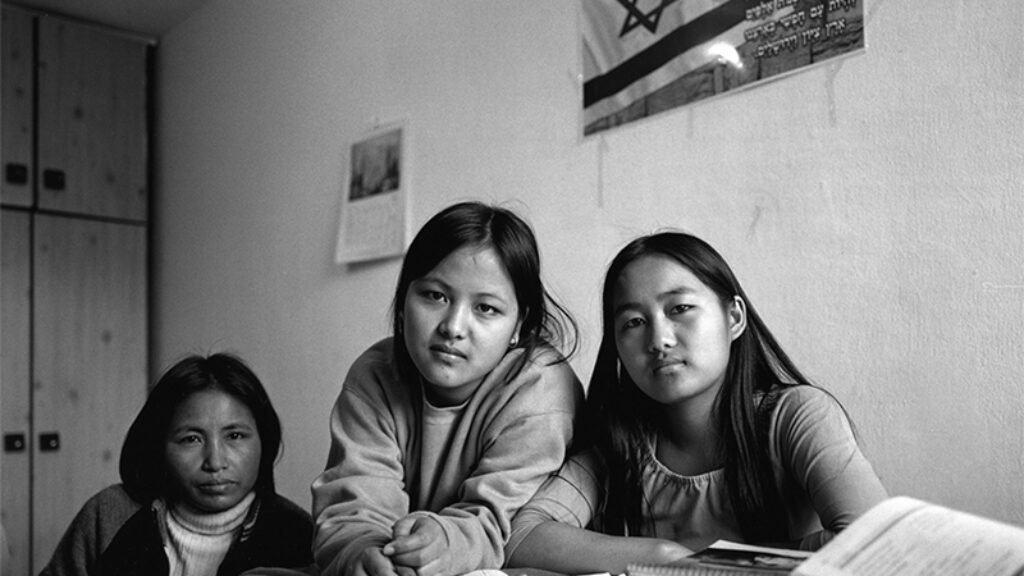
The Blessings of Manasia
His father recited Modeh Ani every morning and ordered a set of tefillin from Mumbai. Unaware that they were meant to be worn and not merely kept, he put them away on a shelf.
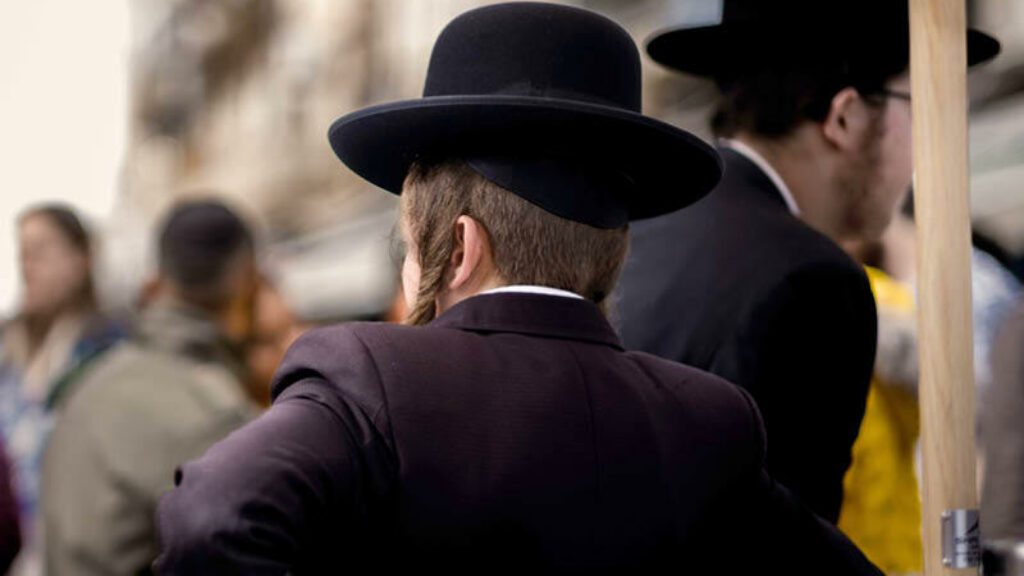
Sisters of Iron and Coders in Black Hats: Haredi Integration and the War Against Hamas
As Haredi men tie tzitzit for the IDF, and Haredi women volunteer to help soldiers, does their response to October 7th mark a turning point of integration?
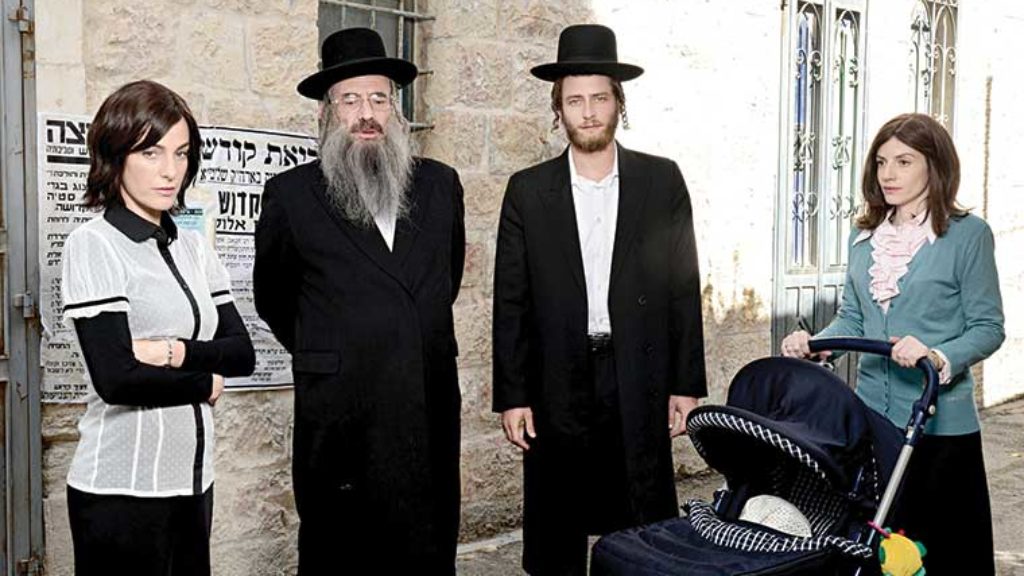
Nuclear Family
Part of the artistry of Shtisel derives from an almost ritualistic obsession with the details that ultra-Orthodox Jews themselves obsess over.
The Nation of Israel?
The case for an Israeli—not Jewish—republic.

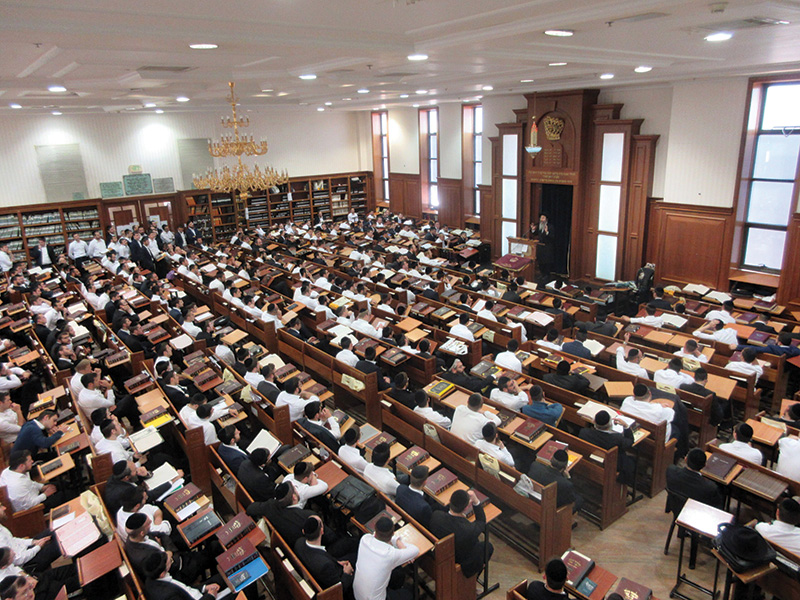
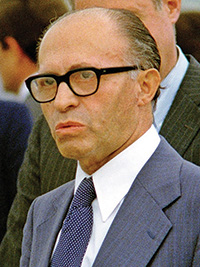
JJ Gross
What was originally intended as a way of enabling a handful of qualified scholars to avoid army service in order to learn Torah has become a massive fraud whereby hundreds of thousands of indolent young men claim to learn Torah in order to avoid army service. The very idea that every male child born under the umbra of a black Borsalino is cut out for a a life of full-time Talmud study is as absurd as arguing that every child born within a mile radius of Lincoln Center is cut out to be a concert violinist. Back in the Talmudic era it was known that "Elef nichnas v'echad yotzei" -- that of every thousand who enter the yeshiva perhaps one worthy scholar will emerge. Today it's more like ten thousand for one. Serious Torah study requires both a razor-keen mind and an extremely well-padded posterior ( zitzfleisch, lit: seat meat). That crime of over 160,000 haredi wastrels evading service is compounded by the billions they are draining from the taxpayers pocket in order to subsidize their indolence. And all this because of the inherent corruption of coalition horse-trading whereby an unscrupulous and totally secular political leader will sell both the public interest and national security in order to retain the semblance of power.